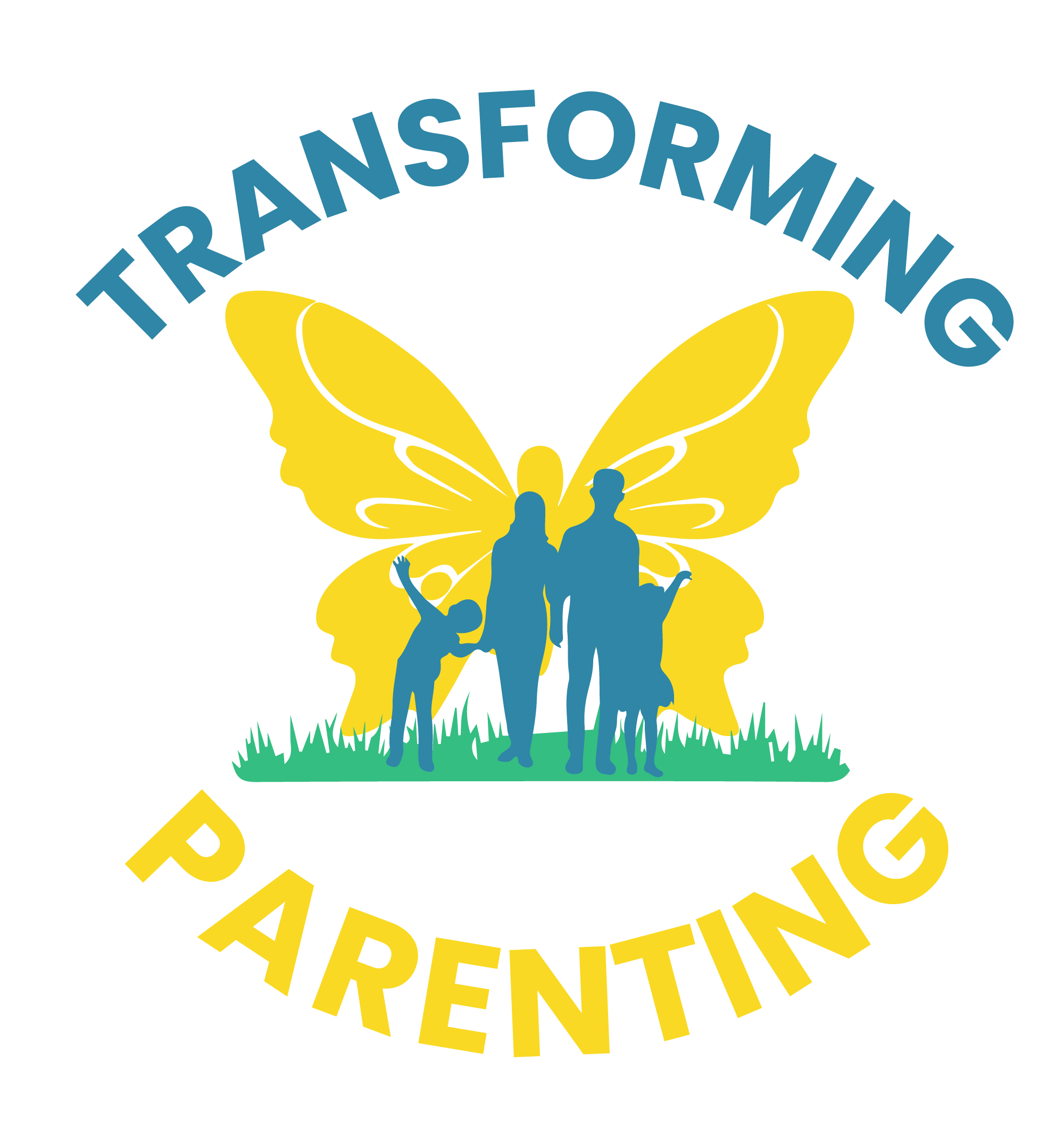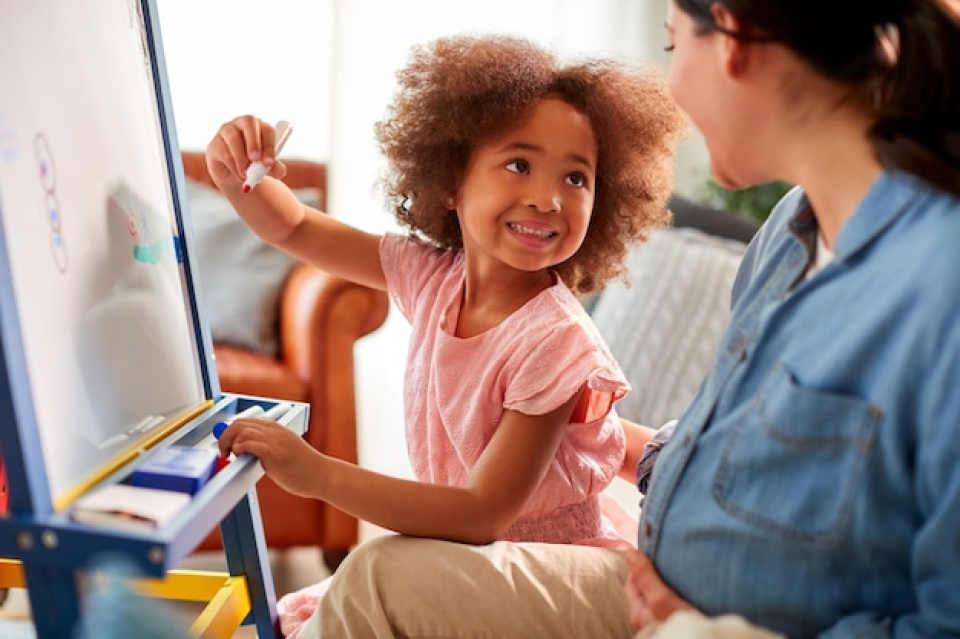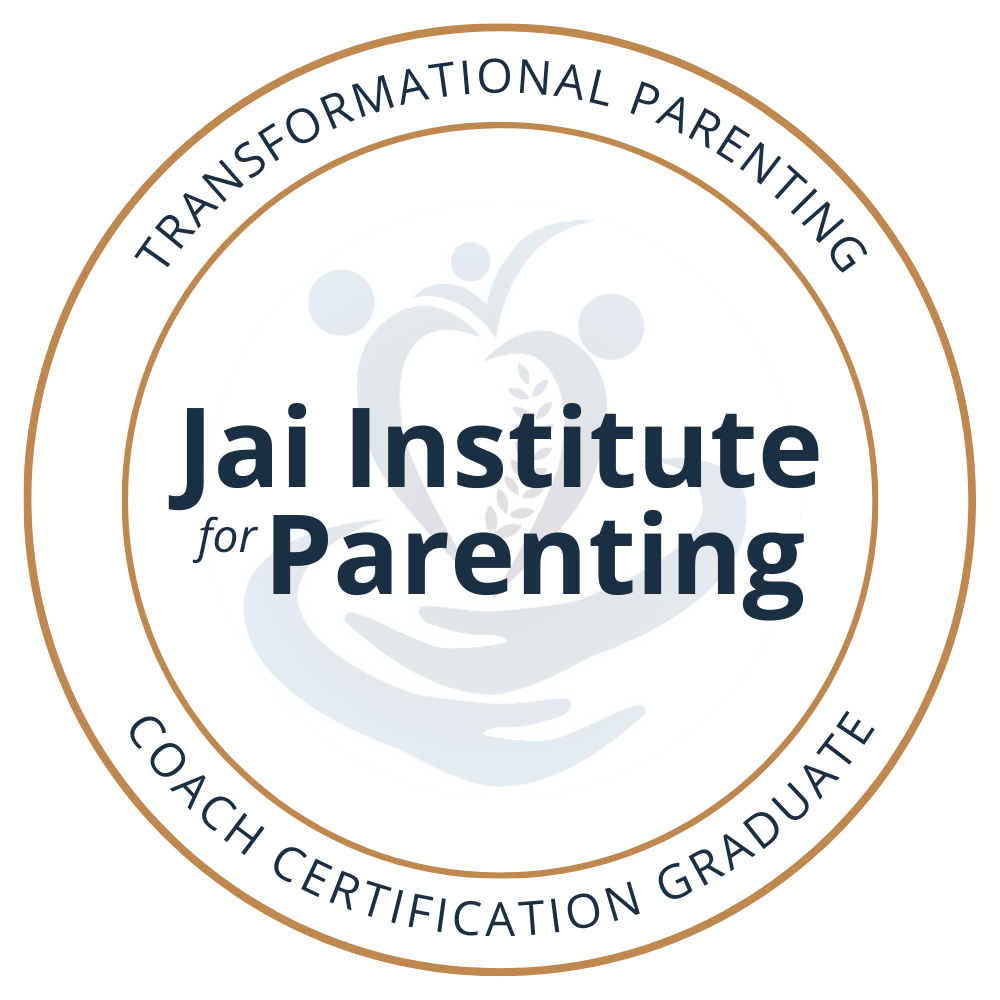Start early if you can (and it’s never too late)
I absolutely LOVE teenagers. I love their spunk and emerging courage. All of a sudden, our children emerge as individuals with points of view, passions, and thoughtful opinions curated from their own life experiences rather than from simply embracing ours.
So, I’m not going to lie; when I hear people say things like:
“Oof, she’s going to be a handful when she’s a teenager.”
“Just wait until he’s 14!”
“The teen years are the WORST!”
I just want to give everyone a big hug. Because it doesn’t have to be this way.
Raising teenagers can truly be the most fulfilling time of parenting. While the foundations of a fantastic relationship with your teens are best established before they are teens, it’s never too late.
So, let’s talk about some brain science, childhood development, and individuation as a launching pad. And then, I’ll share my best advice for parenting teens if your foray into Peaceful Parenting has come later in life.
Inside the Teenage Brain
Teenagers’ brains undergo significant developmental changes during adolescence, which is a critical period of growth and maturation. A combination of genetic factors, hormonal changes, and environmental influences affect these changes. **Teenage brains are NOT grown-up brains.** In neuro-normative development, the brain fully matures in the mid-20’s.
Here are some key aspects of adolescent brain development:
Frontal Lobe Development
The frontal lobes, responsible for higher-order thinking, decision-making, planning, and impulse control, continue to develop during adolescence. This process is known as cortical thickening and pruning. Teenagers may still be refining their ability to make judgments and think critically.
Prefrontal Cortex Maturation
The prefrontal cortex, a part of the frontal lobe, is crucial for executive functions such as reasoning, problem-solving, and self-control. It continues to mature throughout adolescence and into early adulthood. This ongoing development can explain why teenagers may sometimes exhibit impulsive behavior and struggle with self-regulation.
Emotional Regulation
The limbic system, which processes emotions, undergoes changes during adolescence. While teenagers can experience intense emotions, they may not always have the skills to regulate them effectively. Emotional responses can be more volatile during this period.
Risk-Taking and Sensation-Seeking
The combination of developing frontal lobes and heightened sensitivity in reward-related brain areas can lead to an increased inclination for risk-taking and sensation-seeking behaviors. This can sometimes manifest as reckless decision-making.
Peer Influence
The brain’s reward system is particularly responsive to social interactions during adolescence. Peer relationships play a significant role in shaping behavior and decision-making. Adolescents are often more influenced by their peers than by adults.
Neuroplasticity
The adolescent brain retains a high degree of neuroplasticity, meaning it can adapt and change in response to learning and experience. This flexibility allows for the acquisition of new skills and knowledge.
Hormonal Changes
Hormonal changes, particularly the surge in sex hormones like testosterone and estrogen, play a role in brain development and the onset of physical changes associated with puberty. These hormonal shifts can influence mood, emotions, and behavior.
Sleep Patterns
Adolescents often experience a shift in their sleep patterns, with a tendency to stay up later and sleep in. This shift is partly due to changes in the circadian rhythm, which can affect cognitive functioning, mood, and overall well-being.
Myelination
Myelination, the process of insulating nerve fibers with a fatty substance called myelin, continues during adolescence. This process enhances the speed and efficiency of neural transmission, contributing to improved cognitive functioning.
It’s important to note that the rate and timing of these developmental changes can vary from person to person. Additionally, the interplay of genetics, environment, and individual experiences can all influence how these changes manifest in an adolescent’s behavior and cognitive abilities. Understanding these developmental processes can help parents, educators, and healthcare professionals better support teenagers during this crucial phase of life.
Here’s the Hard Part: Individuation
Let’s chat about teenage individuation – that’s a fancy way of saying how teens start becoming their own unique selves. It’s like they’re breaking out of their childhood shell and finding their own path.
So, you know how when kids are younger, they often look up to their parents or other adults for guidance and try to fit into what’s expected of them? Well, during the teenage years, something amazing (should we choose to see it this way) happens. Teens start realizing that they’re their own person with their own thoughts, feelings, and ideas. It’s like they’re trying on different outfits in a store, but these outfits represent their personalities and interests.
One of the big things that happens during this process is a quest for independence. Teens start craving more freedom to make their own choices. You might notice them pushing boundaries a bit, wanting to make decisions for themselves, and sometimes even rebelling a little.
Rather than fighting this important phase of development, we can CELEBRATE IT!!! “Ooooh, look at my kid individuating!!”
Friendships also play a significant role in individuation. Teens often find a group of friends who share their interests and values. These friendships help shape their identity as they explore new hobbies, music, and fashion choices. It’s like they’re building their own unique tribe.
It’s not all smooth sailing, though. Teenagers can sometimes feel confused, moody, or uncertain about who they are. It’s like they’re on a rollercoaster of emotions, and they’re still figuring out what makes them tick. That’s completely normal!
As they go through this process, they might experiment with different roles and personas. They could be super into a certain style one day and completely change it the next. They might have strong opinions about things that surprise or even challenge your beliefs. It can be a bit disorienting for everyone involved, but it’s part of the journey.
The good news is that, over time, most teens start to find a sense of self that feels authentic to them. They figure out their values, passions, and what makes them unique. It’s like a puzzle coming together, and it’s pretty awesome to witness.
So, while teenage individuation can be a bumpy ride, it’s all part of growing up and becoming your own person. Just remember to be patient, offer support, and keep those lines of communication open. Your teenager might be navigating some choppy waters, but they’ll eventually sail into adulthood with a strong sense of who they are.
I know it’s scary, but teenagers’ behavior WILL settle when we settle into being comfortable with their autonomy and freedom. They will make some bad decisions, but as our dear friend Alfie Kohn says: “The way kids learn to make decisions is by allowing them to make decisions.”
Or as my life partner, Steve, says:
“Good judgment comes from experience. Experience comes from bad judgment.”
The mistake so many parents of teens make is that we think they will take our word based on our past experiences of what they should/shouldn’t do. But the implied message is: “I don’t trust you to learn this for yourself.”
Understandably, they will reject this and often push the boundary further than they would have given the opportunity to figure it out for themselves. Breathe. Let go. Trust.
Let them find their way… because:
The More We Resist, Control, and Assert…The More We’ll Experience a Rebellious Teenager
There are times, as the parent of a teenager, when their actions require us to be assertive. So, the goal is to minimize these.
We don’t really need to react when:
Our teenager is in a bad mood (let them be in a bad mood… it’s ok!)
They forget to take out the trash (remember what’s happening in their brain. Empowering teens looks a lot more like supporting them to create strategies to follow through on their commitments than yelling at them for not following through on their commitments.)
They are struggling in their friend group or in school (we can practice active listening, but we should resist the urge to fix, advise, or intervene. If our goal is building confidence in our teens, we need to give them the space to figure things out on their own.)
They don’t want to do stuff with us (they are our children, not our emotional support animals!)
The Feelings We Have About Their Individuation Are Our Responsibility… Not Theirs!
It’s normal to want to cling to the role that we used to play in our children’s lives. And… we have to resist this urge. Allow yourself to feel sad. There is mourning here. Acknowledging it, feeling it, and processing it can take some time.
You can give your teens the gift of releasing them from any obligation to save you from these feelings. We get to let them fly.
As my own kids have gotten their driver’s licenses and shifted from me being the most important person in their lives to their peers being the most important people in their lives, I’ve come to think of myself as the “mother ship.” They are traveling into the world, exploring regions farther and farther away. But I’m always here as an anchor for refueling.
My 18-year-old son called me from college last night. He asked me if I “had the capacity for an important conversation.” (Things kids of coaches say… LOL!). It was after 9 pm, and he knew I was an early-to-bed human.
“What is the topic?” I asked.
“Me.”
“Well,” I replied, “I do have the capacity for a conversation about you.” He asked for some advice about a relationship. I could see that he was projecting a defense adaptation based on past experiences.
I shared a different perspective. “So, did I debunk your narrative?” (Things coach parents say to their kids!!)
“Yeah, you did. That’s why the first call is ALWAYS to mom.”





